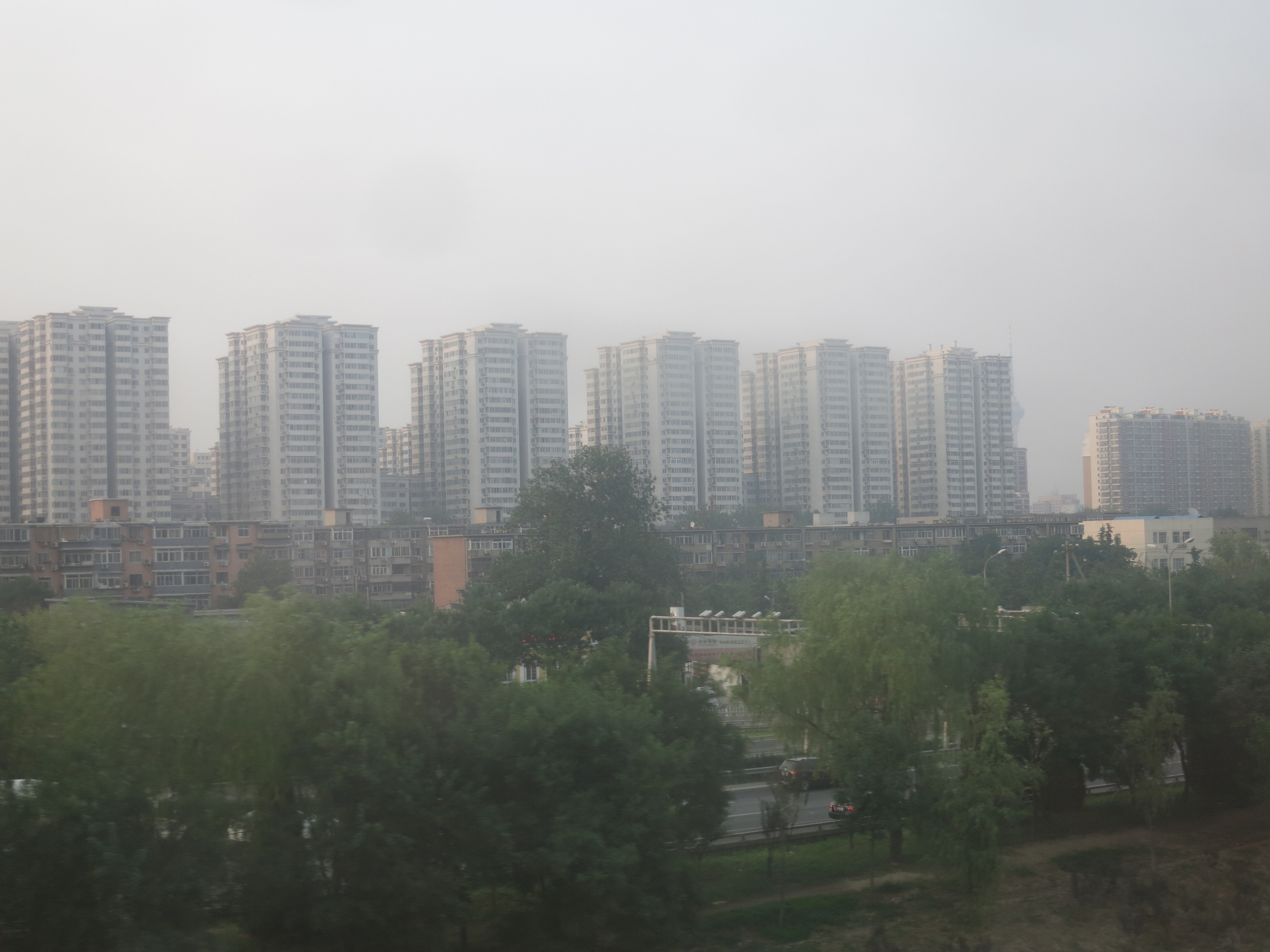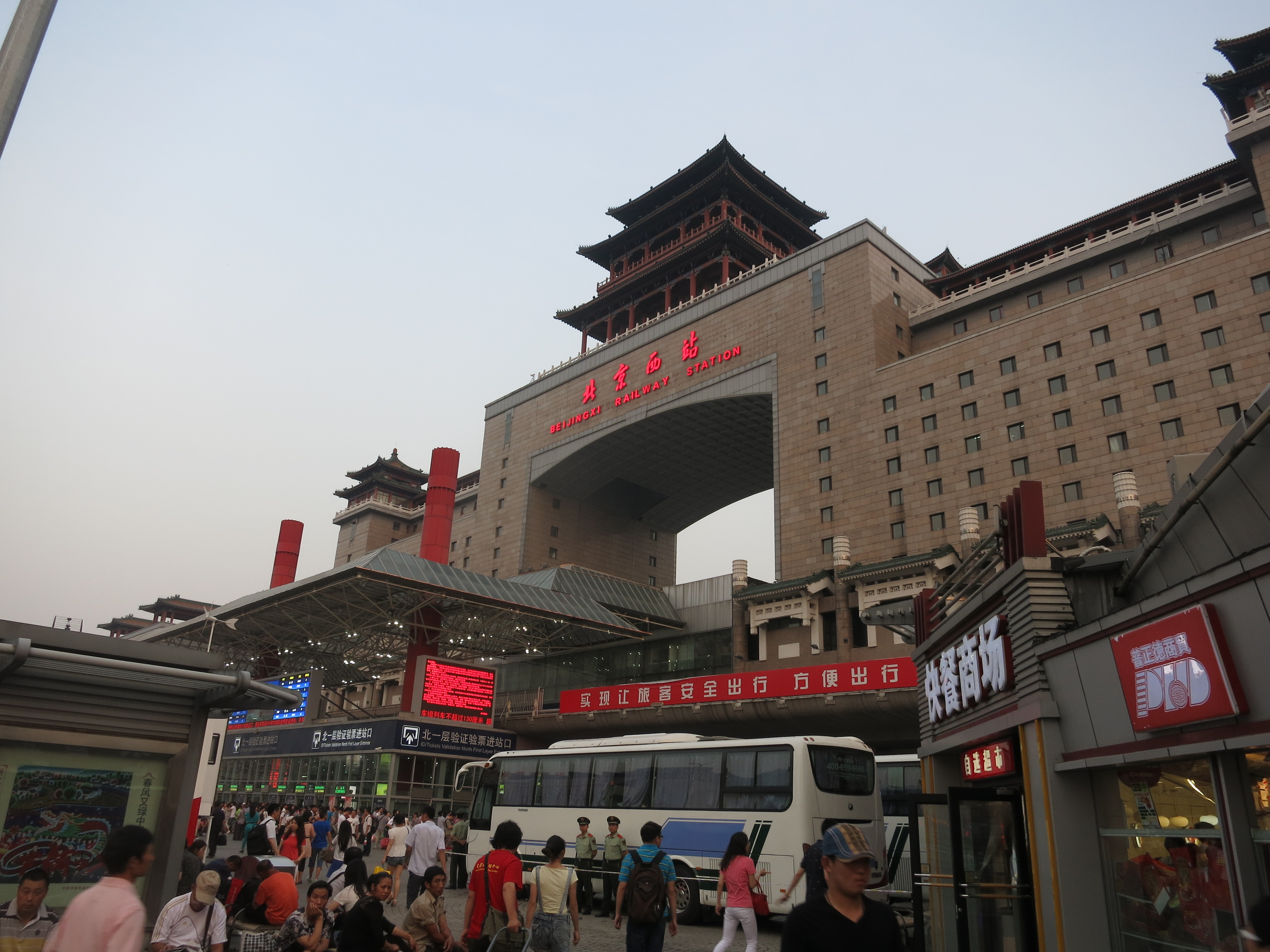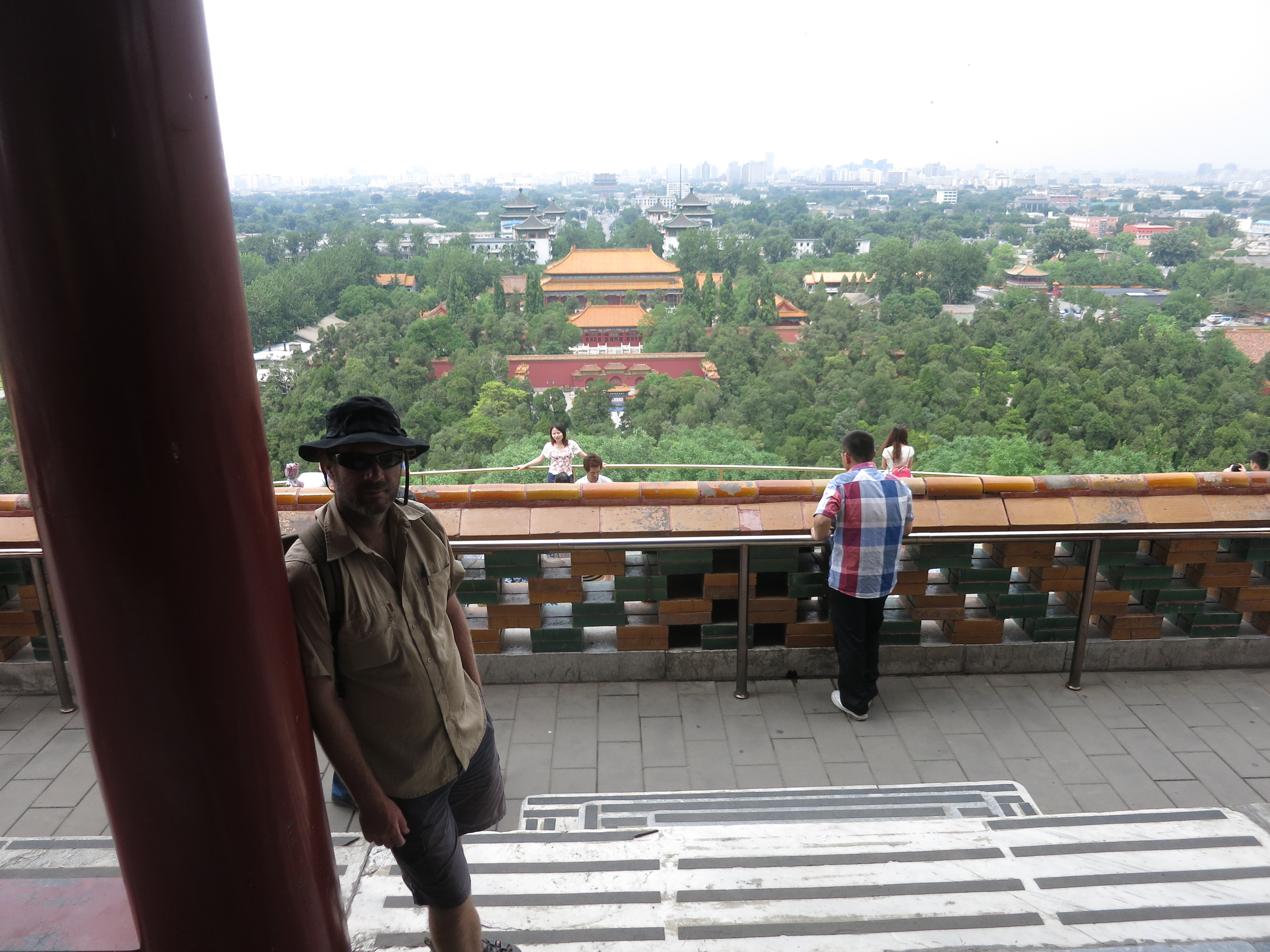A tiny part of the bigness of Beijing
If Bangkok was big, Beijing is huge, as is China as a whole (or what we've seen of it, which is Beijing and the train). Coming into Beijing you pass endless rows of huge housing blocks, wide freeways and, stretching as far as you can see, more buildings and yet more. Most of the cities we drifted past were like this, at least in terms of the endless housing blocks, but Beijing is of a different scale. It's just huge.
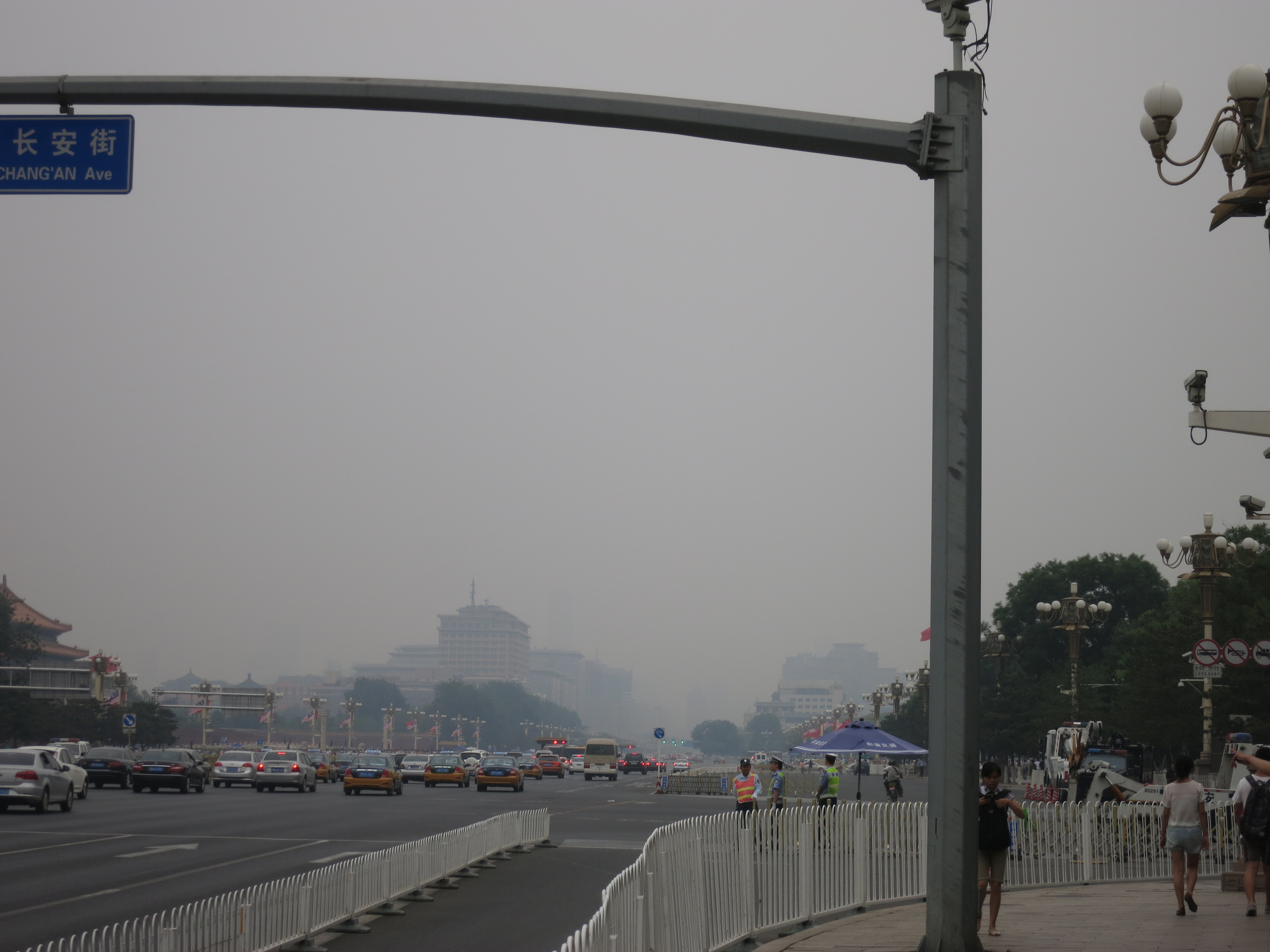
Beijing railway station, our first glimpse of Beijing
It's also quite different in character to the cities in south-east Asia that we've been through – and certainly very different from the various Chinatowns throughout the world! For a start it's wide and open and orderly. Not only are there footpaths and not only can you walk on them, but they're huge. Whereas Bangkok seemed bursting at the seams, every available space up to the gutter utilised, Beijing has space, very reminiscent of Moscow's wide-open, imposing streets. They both have something of the same heroic Socialist air – if there were stirring Communist hero-worker ballads with ringing horns and stirring choirs resounding in the air it would feel complete. Although the thing about this very authoritarian security state is that it has big parts of exuberant consumer capitalism and business elites who are incredibly wealthy by western, let alone Chinese, standards.
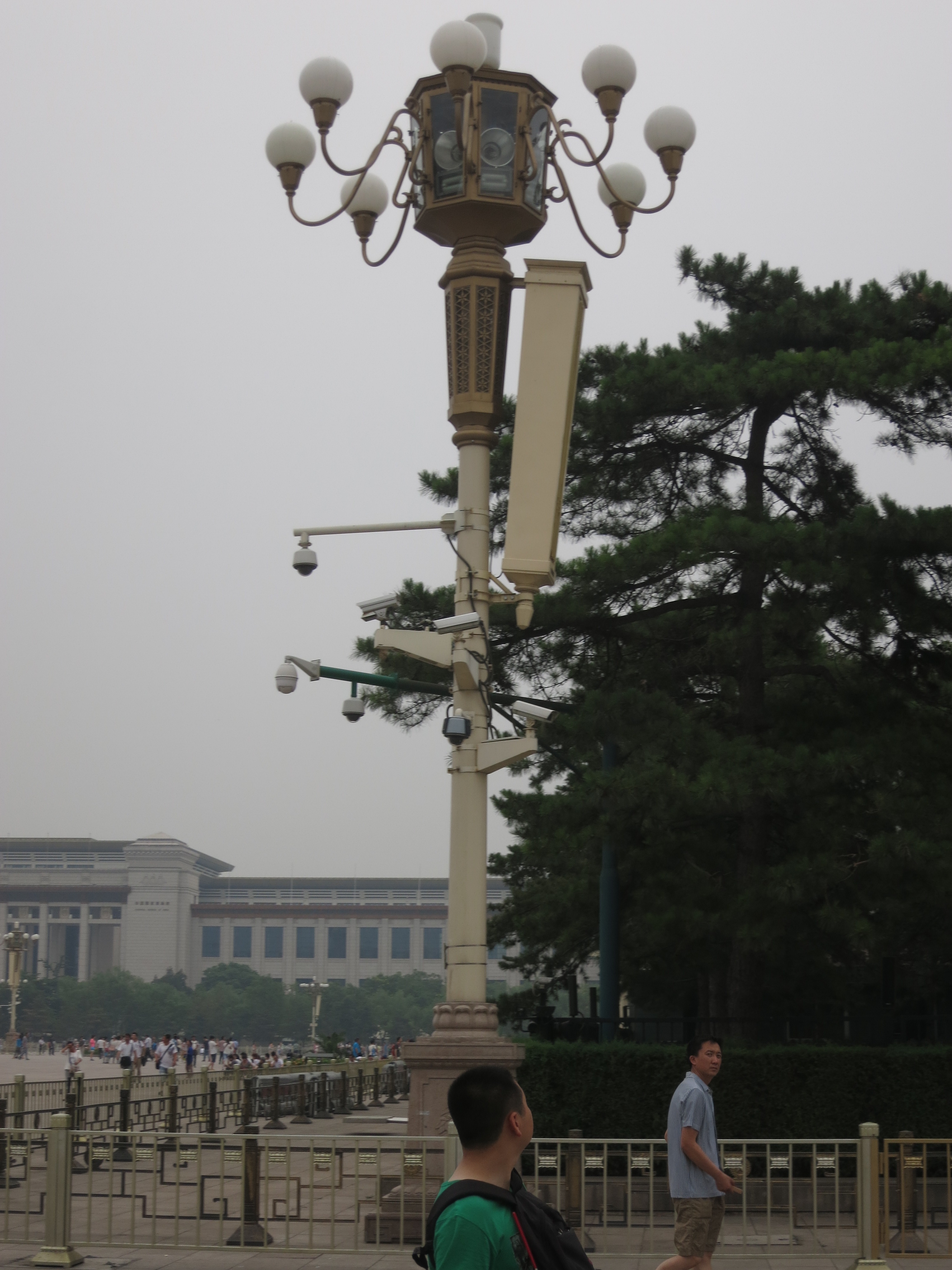 We are watching you. Beijing, apart from the many hues of security personnel and the many baggage scanners and other checks, had an abundance of CCTV cameras - you'd almost think you were in London!
We are watching you. Beijing, apart from the many hues of security personnel and the many baggage scanners and other checks, had an abundance of CCTV cameras - you'd almost think you were in London!
Another difference with the cities we've seen so far is the relative absence of street stalls and hawkers – those few that I saw were clearly either very regulated (in the case of 'street' stalls) or in some danger of being moved on by the authorities.
The bigness of Beijing
An amateurish compilation of video showing the bigness of Beijing. It's hard to capture the scale of Beijing – but everything is huge, at a different order of magnitude. The streets are wide, the buildings are huge and the centres of imperial power are overwhelming. Tiananmen square and the adjacent Forbidden City are just huge – in themselves and the buildings that surround them. Amongst all this efficient, clean orderliness are ever-present reminders of the security state. CCTV cameras everywhere, baggage scanners at every subway and every entrance to Tiananmen square and an array of security personnel, ranging from unarmed railway security staff to soldiers in fatigues armed with sub-machine guns.
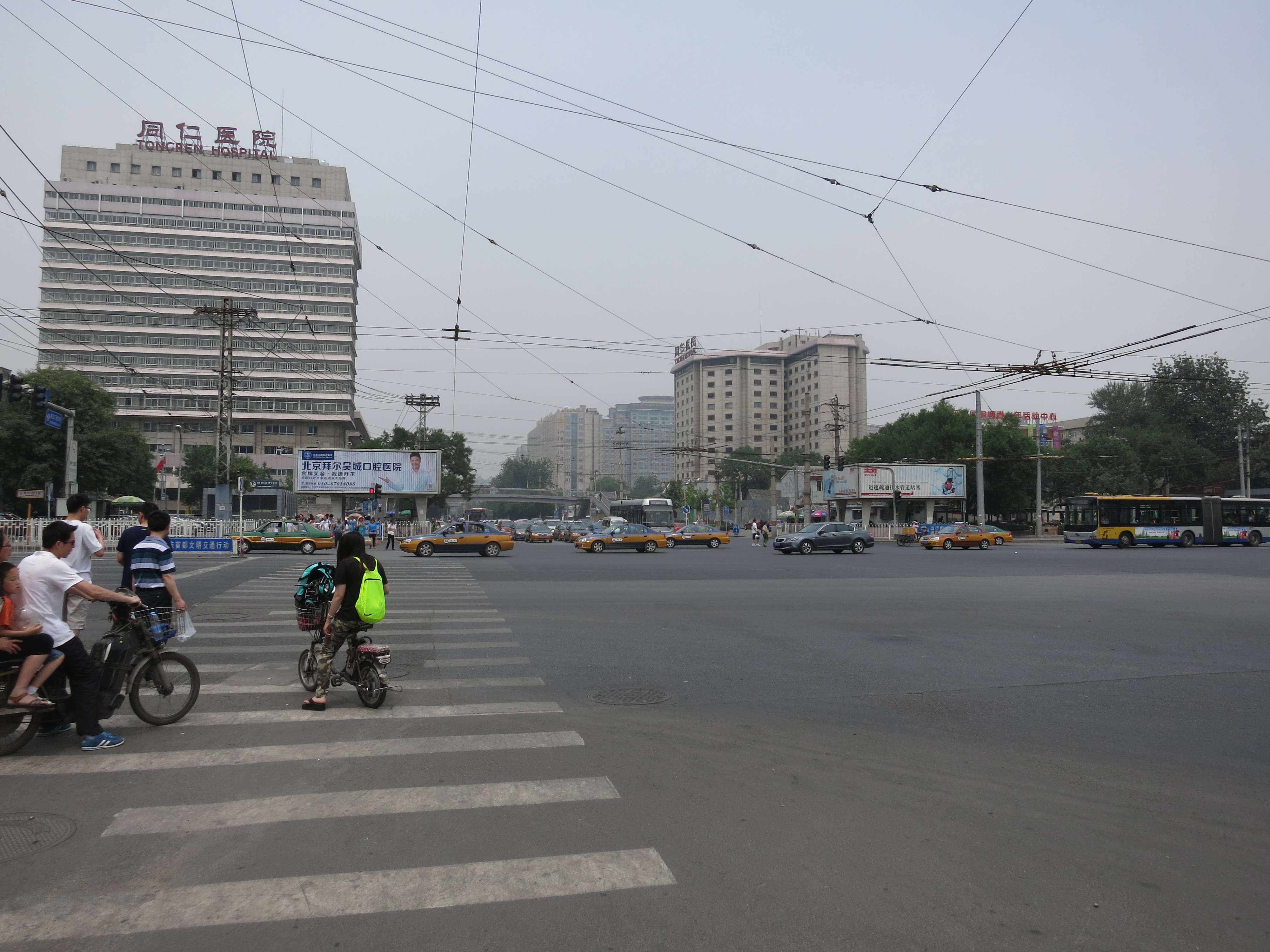
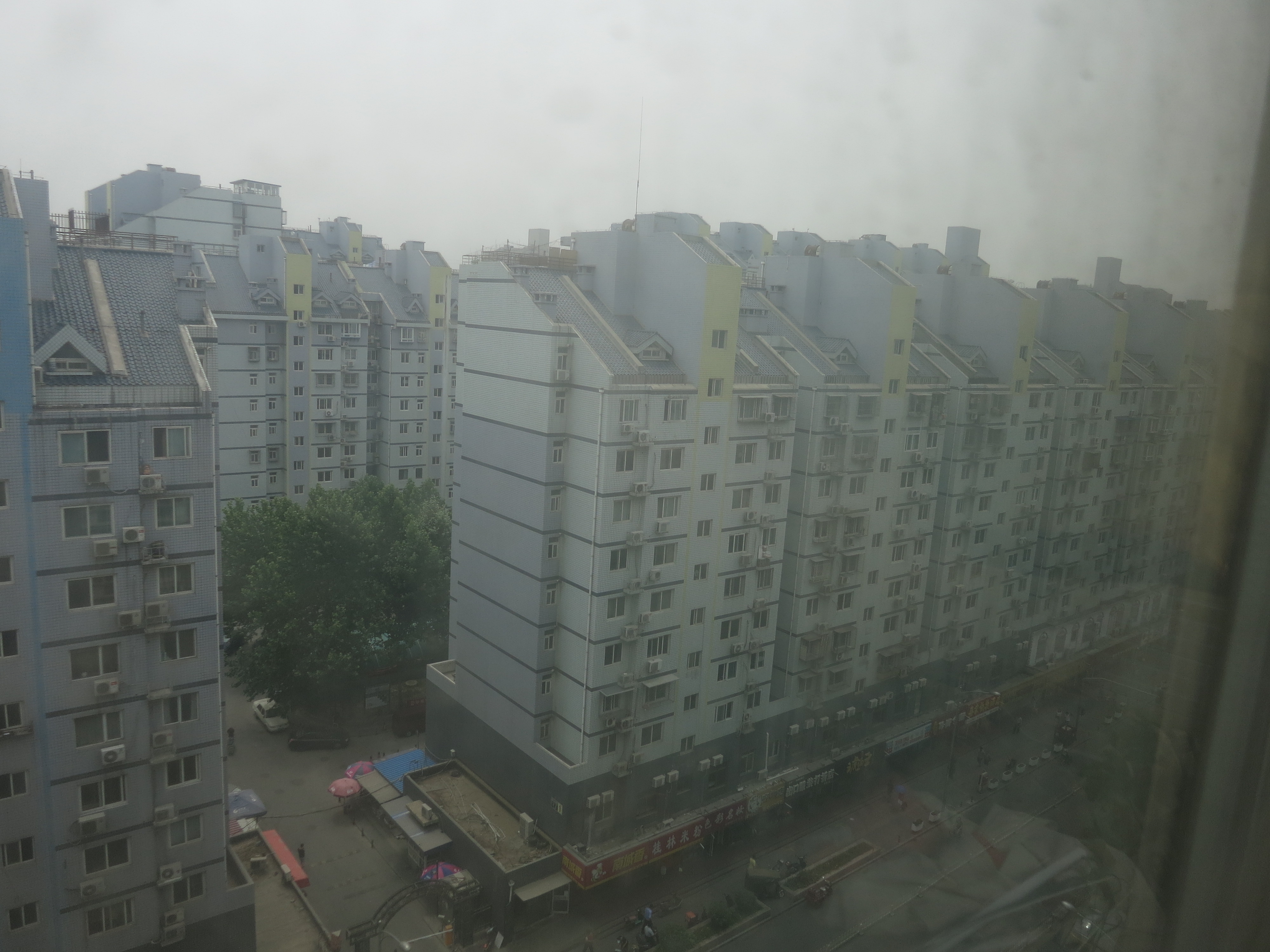
It was understandably difficult to discuss politics with locals, so I found it hard to gauge if there was resentment against this class of new rich or if people still had some vestiges of genuine Communist loyalty, but my shallow feeling is that they support to a fair degree the authorities and have a feeling of a country getting stronger and wealthier by the minute – as I mentioned in the last post, the feeling of frenetic building is profound. Everywhere you look huge blocks of flats are going up, railway stations are being constructed, cities are rising from the blank earth. In many ways eternal China seems to be creating itself from scratch, now, minute by minute – but, like many of the confusing things for a visitor stopping briefly, there is also a very strong awareness of Chinese history and a pride that they are part of a very old, very big civilisation.
For that is how it feels here, that, despite the interest in western goods and western people, we are in a different civilisation, a culturally self-sufficient world whose main reference points are internal. Obviously all the countries we've visited haven't been mere ciphers of western civilisation, but, with the exception of Vietnam, there has been a feeling that they are following a western model and that western values are very influential (although not uncontested).
Our own experience of Beijing – and China overall – has been very positive. Neither of us had huge expectations of China, or even a particular interest in it, so we've been doubly surprised at how good it's been. The people, though seemingly bellowing belligerently at each much of the time, have been really nice. This has probably been helped by staying with two different, lovely couchsurfing hosts as well as meeting other couchsurfer hosts socially, who took us around to different parts of Beijing, smoothed the way, gave us advice and suggestions and answered all our pestering questions!
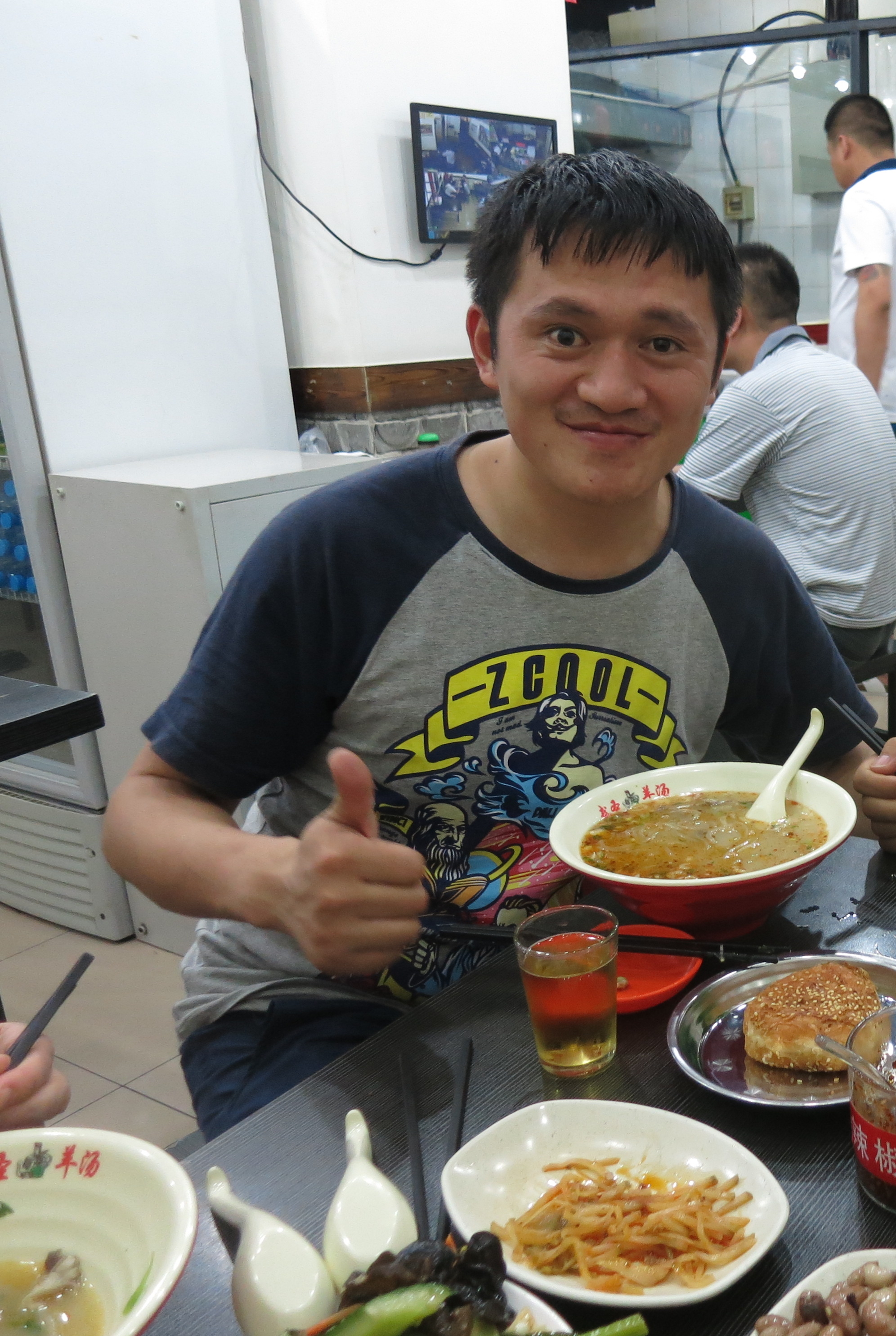 Our couchsurfing host for the first night Du, who had already planned to go back to his home village for the weekend. What a legend! If cycling to Tibet wasn't enough, he cycled from China to South Africa, as well as a few other impressive journeys. He took us to a local eatery and selected some Beijing food for us
Our couchsurfing host for the first night Du, who had already planned to go back to his home village for the weekend. What a legend! If cycling to Tibet wasn't enough, he cycled from China to South Africa, as well as a few other impressive journeys. He took us to a local eatery and selected some Beijing food for us
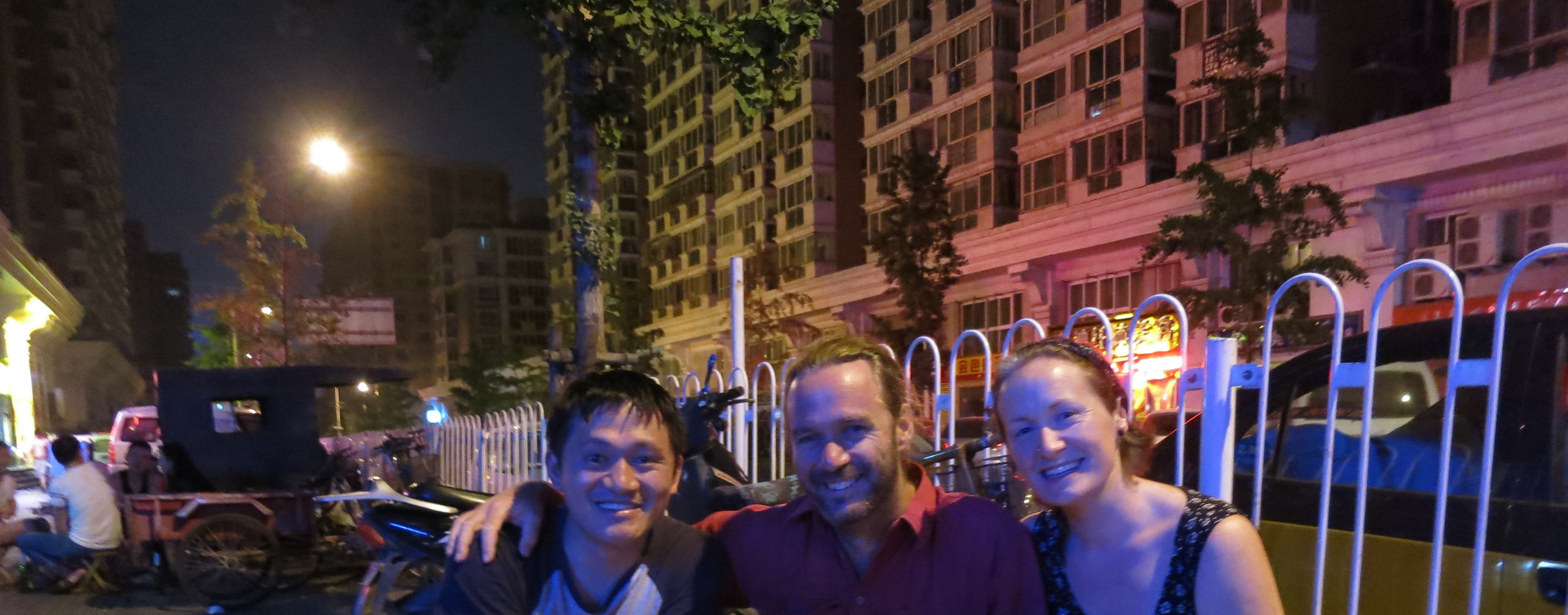 And afterwards we sat in the street at small chairs yarning until late into the night
And afterwards we sat in the street at small chairs yarning until late into the night
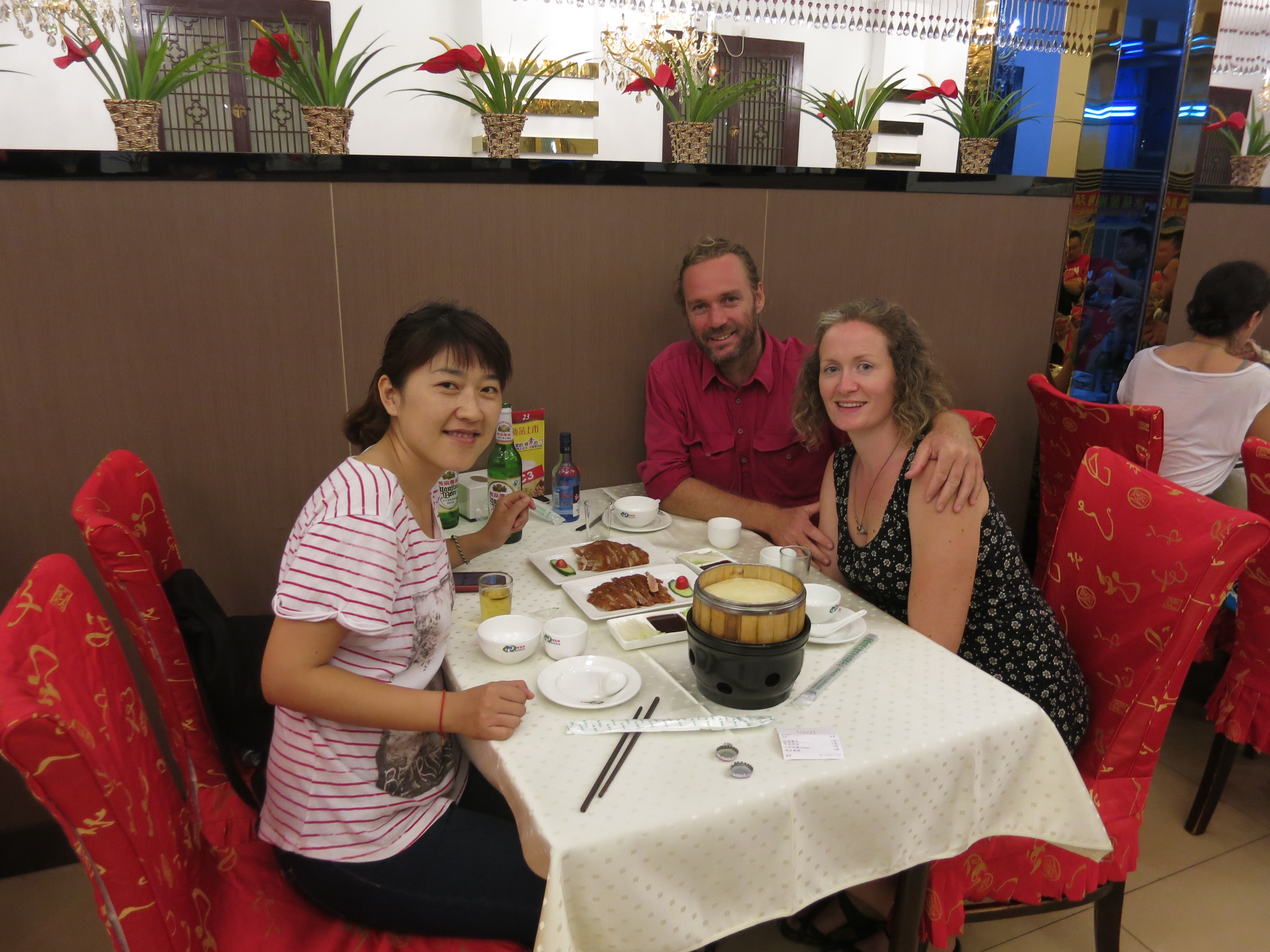
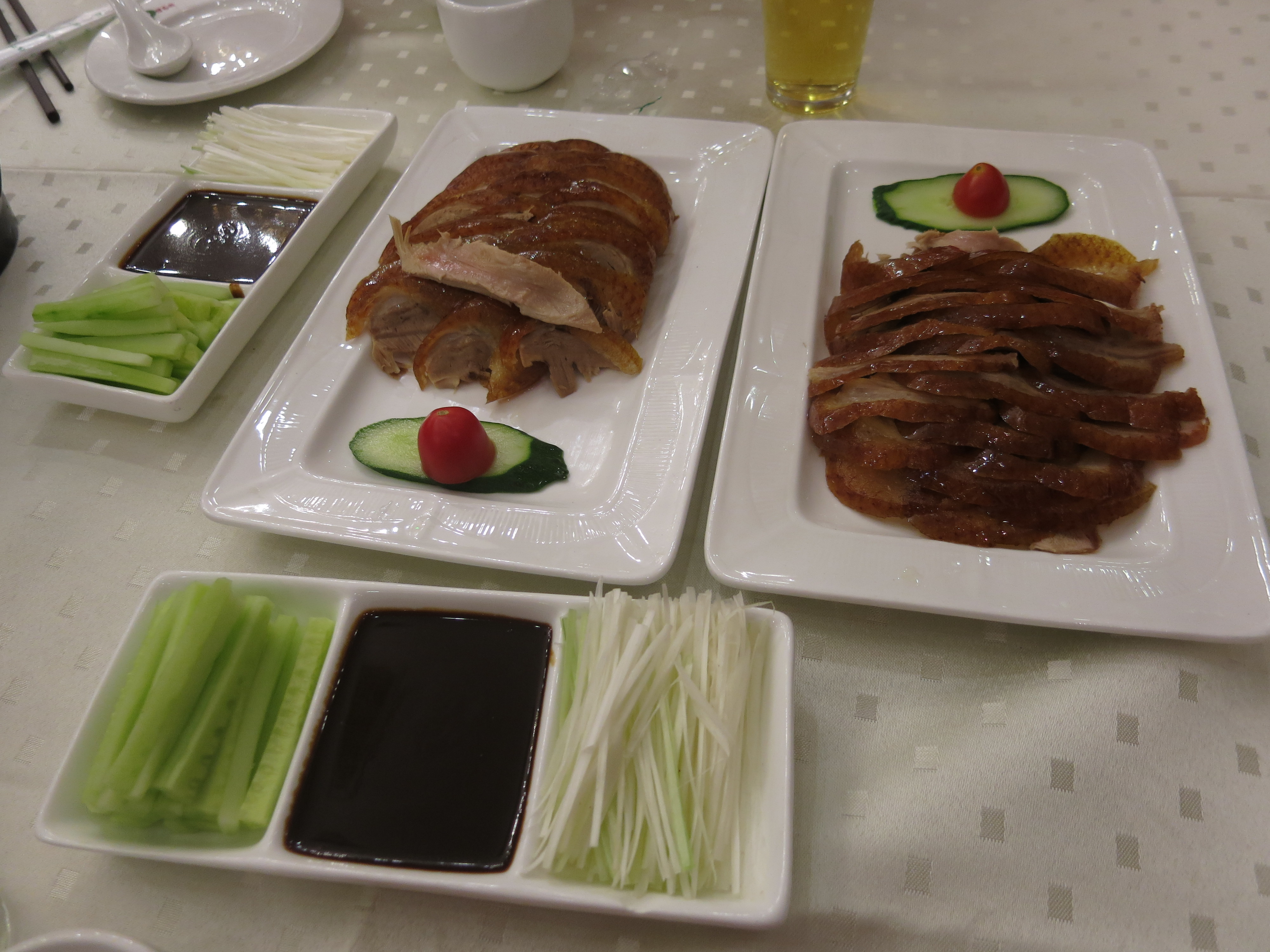
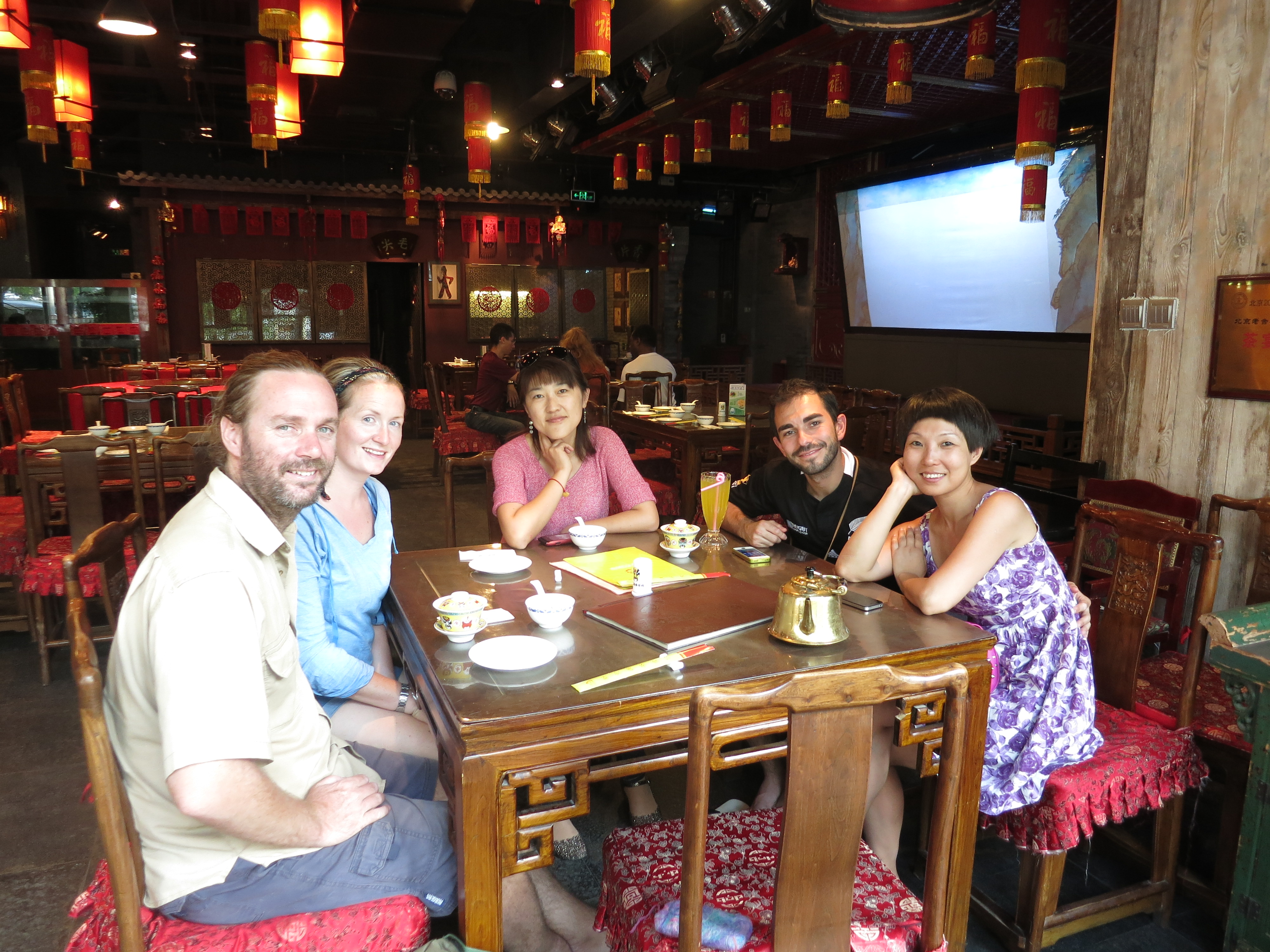
We went out to a big suburban restaurant for dinner, ate lamb noodle soup in a small, local eatery in inner-city Beijing then sat on tiny chairs in the street and talked over beer till early morning, went on a picnic to the mountains (think tents, mats, a huge amount of food on a patch of flat concrete next to a small dam 100m from the car park!), wandered around a rare part of old Beijing still standing and ate Peking Duck, tramped around Tiananmen square and the Forbidden city, ate Szechuan hot pot with our Szechuanese host guiding us through the intricacies of blood tofu and cow guts in blisteringly hot broth. And of course spent a good deal of time in the large and efficient Beijing subway!
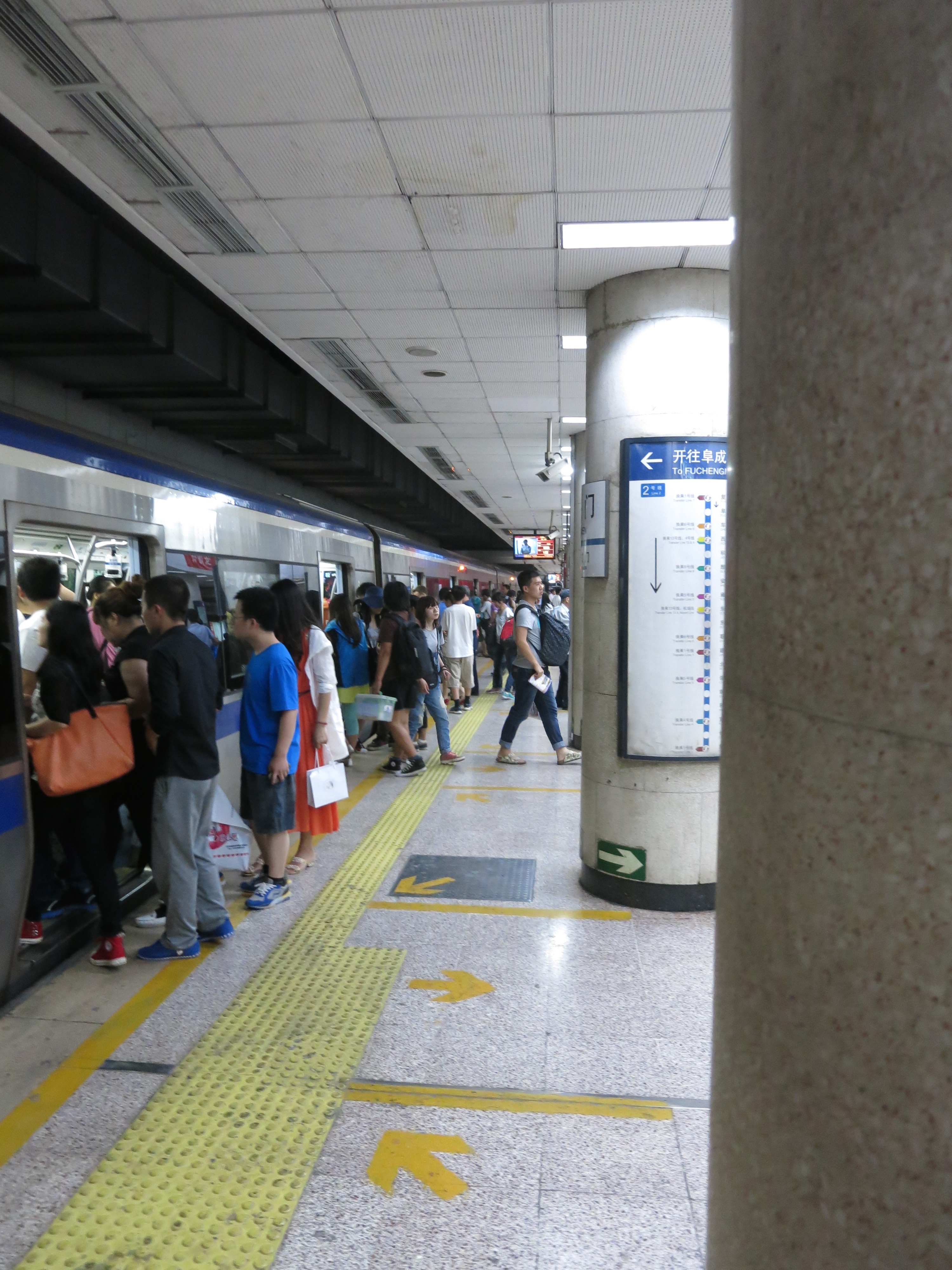 We saw a lot of the Beijing metro!
We saw a lot of the Beijing metro!
A collection of photos of Tiananmen and the Forbidden city. Click to watch slideshow or open link to read notes and comments
Two other random observations.
One: I've been surprised about the lack of westerners, even in the very touristy areas. Perhaps it's the low season, but I expected a place like Beijing in particular to have many more western tourists, but it was very rare to see any. I'd say in the week we were here, with the thousands upon thousands of people that we've shared brief moments with, we say only a few dozen westerners.
Two: Beijing – and, we're told, northern China in general – has a very different drinking culture to south-east Asia, where a beer or two (not more) was occasionally enjoyed, but drinking alcohol was not generally a central aspect of culinary culture. In China, that certainly isn't the case, with people drinking openly and with gusto at restaurants, a strong culture of gānbēi (干杯 - cheers), or scolling, beer and báijiǔ (白酒), a type of clear rice and grain spirit.
Hanging out in Beijing! A view form Jingshan Park
After our three days and four nights in Beijing we got up early for one last ride in the subway to Beijing West railway station, another gigantic airport-like station with multiple security checks and scans and hopped on one of China's high-speed trains for Harbin, in the north. It was both our first time in a high-speed train and it's remarkably smooth. In fact, without the digital display at the end of the carriage, you would have no idea that you were blasting along at up to 300 km/h! The train itself is a comfortable, spanking new upright seater – like a business class section on a plane, except the view's better and you can wander around! Well, the view would be better, except, like the last third of the journey from Nanning to Beijing, it's mostly flat, sometimes slightly rolling and, very occasionally, there are sharp hills in the distance (the type that Australians might be tempted to classify as mountains!) – the land is mostly tilled agricultural land with stands of trees breaking up the monotony, here and there in the fields the tombs of ancestors and the whole criss-crossed with power lines, the odd highway and railway line. Scattered here and there are small townships and periodically, abruptly, loom the Promethean cities of new China. And, of course, everywhere there is renovation and construction.
Postscript
After drafting this post and arriving in Russia, outside the Great Firewall of China (no google, no facebook - as well as much more consequential censorship), I discover what I should have already known. June 4th was the 25th anniversary of the Tiananmen square massacre, an event that affected me greatly as a teenager. It was certainly on my mind when we were there, thinking of the tanks running over peaceful protestors in the night, shots fired at point blank... The omnipresent security now makes more sense.
